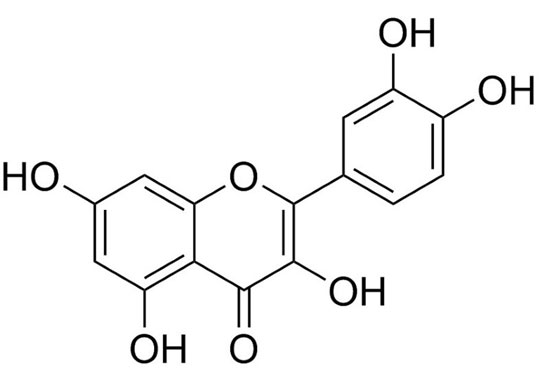Quercetin is one of the most potent natural antioxidants on the planet

Quercetin is a naturally occurring compound that has the ability to protect plants from harsh climates and environmental toxins. It also contributes to the various colors that fruits and vegetables exhibit. However, it’s not just plants that benefit from quercetin but humans as well. Once ingested, this compound induces cell-protective effects including antioxidant, anticancer, anti-inflammatory, and immune-boosting effects.
One of the biggest health problems that the world is currently facing is cancer. In 2018, the National Cancer Institute estimated that more than 1.7 million new cases of cancer will be diagnosed in the U.S. Researchers are still searching for safe and effective cancer treatments and preventive methods. Quercetin, along with other naturally occurring compounds, has potent anticancer effects when included in a person’s diet. This was determined based on the results of multiple studies accomplished over the years.
A major contributor to the anticancer effects of quercetin is its potent antioxidant property. Free radicals are highly reactive byproducts of the body’s metabolic processes. When these build up, they can induce oxidative stress in the body, which has been associated with the onset of cancer. Oxidative stress increases the likelihood of getting cancer since it induces DNA mutations or damage, genome instability, and uncontrolled cell proliferation. Although the body has its own antioxidants to neutralize free radicals, there are instances wherein these are not enough to do the job. This highlights the need for natural antioxidants like quercetin that can significantly reduce the number of free radicals present as well as the risk of developing cancer.
A study published in the Biological and Pharmaceutical Bulletin in 2007 found that quercetin prevents lung cancer development in rats that have been exposed to benzo(a)pyrene. This carcinogen is typically found in diesel fumes and cigarettes smoke so the results of the study have potential real-life implications and are not limited to animal models. In relation to these findings, a 2010 study in the journal Carcinogenesis looked at how humans can benefit from eating quercetin-rich foods. Results showed that this type of diet can reduce the overall risk of dying from lung cancer by up to 51 percent. Moreover, they also found other methods of action through which this flavonoid works against cancer. These include promoting programmed cell death, as well as preventing the formation of early lung cancer lesions and the movement of cancer cells to other organs.
Quercetin also provides protection against other types of cancer and not just lung cancer. Studies have shown that treatment with this flavonoid reduces the risk of colon and stomach cancer by 32 and 43 percent respectively. Furthermore, it also works against liver cancer through various methods such as interfering with the replicative cycle, blocking DNA damage, and stimulating the production of antioxidants.
Overall, these studies prove that quercetin has great potential as a natural remedy and preventive method against different types of cancer.
What are good sources of quercetin?
Americans have an average daily quercetin intake of 30 milligrams per day, which isn’t enough if you want to enjoy its anticancer benefits. Nowadays, there are commercially available quercetin supplements that can be found in pill, capsule, or liposomal forms. But you can still choose to obtain it from your diet – you have to increase your intake of the following quercetin-rich foods:
• Grapes
• Red onions
• Tomatoes
• Apples
• Citrus fruits
• Green tea
• Dark-colored berries
yogaesoteric
January 21, 2019
